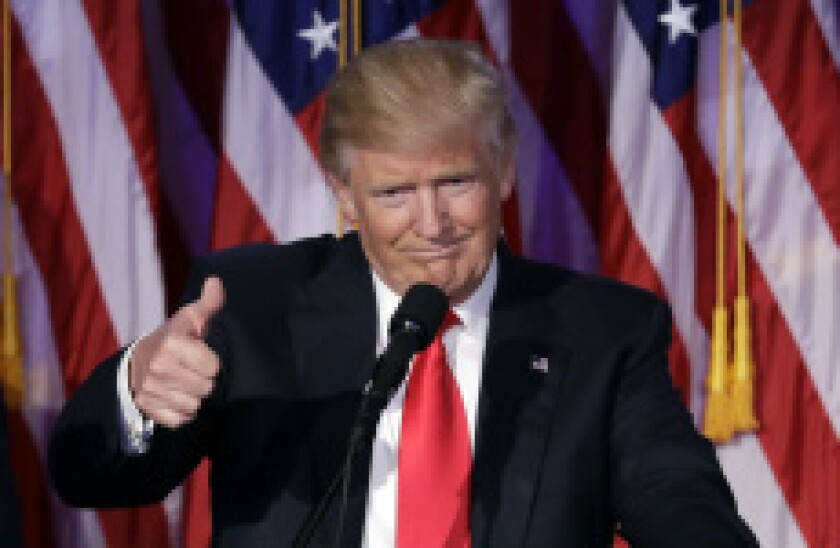The one thing Trump is consistent about is his lack of regard for the rules. Investors and issuers should anticipate a year, if not four, of upheaval. But while Trump’s language can be viewed as pushy and abrasive, his bossy demeanour has the potential to drive change. Assuming he is able to push just far enough to motivate and not so far as to deter conversations, countries will clamour to stay on his good side and not get left behind.
Just as Trump has challenged the status quo in the US, Asia too will be challenged to think seriously about reforms and policy changes will help mature its market further. Countries like China could be inclined to pursue investor-friendly policies to encourage trade and create more incentives for western investors, especially in light of president Xi Jinping’s speech to Davos this week. With the Trans-Pacific Partnership unlikely to go ahead, there is new opportunity to negotiate a relationship with the US under more business friendly terms. At the very least, Asian leaders will be eager to comply with Trump enough so as to not be publicly shamed in a tweet.
Certainly Asia Inc has wasted no time in seeking to get on Trump’s good side. Alibaba’s Jack Ma has already met Trump and told the president-elect that he could create up to 1 million jobs for Americans. Softbank chairman Masayoshi Son met Trump as well, and promised to pour money into the US economy and create thousands of jobs. It’s no accident that former Exxon Mobile chief executive Rex Tillerson has been named the next US Secretary of State. Trump is a businessman before a politician, and business partnerships will play an important role in international relations for him.
Many expect Trump’s early actions to include a boost to infrastructure spending in the US. The move has direct implications for the US economy, but should also drive commodity prices up and demand for related Asian goods. All of which bodes well for Asian markets.
That’s not to say Asia won’t face challenges due to Trump. The focus of the new administration is on building up the US economy and it remains to be seen whether this will lead to protectionist policies.
But Trump’s hardline on trade and his nationalistic attitude will probably damage Latin America more than Asia. Trump has been very vocal about the auto industry, which is an important concern for countries like Mexico. Making moves against automakers would be low hanging fruit for the Trump administration, as it’s a big industry with historic ties to the US industrial workers seeking job. Attacking something like technology with massive tariffs, which would be more problematic for Asia, would be more difficult for Trump, and is of less concern for Americans who would like to keep their iPhones cheap. For emerging market investors who have been traditionally underweight in Asia, the potential for disaster in Latin America could drive funds to reallocate more money to Asian countries.
And if America does decide to make it difficult for foreign companies to do business, then firms will look for other markets into which to sell their goods and services and Asia is still the world’s fastest growing region with favourable demographics.
The knee jerk reaction investors had to pulling money from Asian funds after the election shouldn’t indicate an impending exodus from the region. The new world order presents a chance for Asia to act on some of its less market friendly policies and to seek leadership in any areas vacated by Trump’s US. As he would say, it’s going to be interesting.

